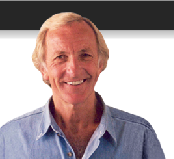Borgstrom enlisted a former political collaborator, Marianne Ny, as the new prosecutor. Ny refused to guarantee that Assange would not be sent on to the United States if he was extradited to Sweden, even though, as The Independent reported, "informal discussions have already taken place between the US and Swedish officials over the possibility of the WikiLeaks founder Julian Assange being delivered into American custody, according to diplomatic sources." This was an open secret in Stockholm. That libertarian Sweden had a dark, documented past of rendering people into the hands of the CIA was not news.
The silence was broken in 2016 when the United Nations Working Party on Arbitrary Detention, a body that decides whether governments are meeting their human rights obligations, ruled that Julian Assange was unlawfully detained by Britain and called on the British government to set him free.
Both the governments of Britain and Sweden had taken part in the UN's investigation, and agreed to abide by its ruling, which carried the weight of international law. The British foreign secretary, Philip Hammond, stood up in Parliament and abused the UN panel.
The Swedish case was a fraud from the moment the police secretly and illegally contacted a Stockholm tabloid and ignited the hysteria that was to consume Assange. WikiLeaks' revelations of America's war crimes had shamed the hand-maidens of power and its vested interests, who called themselves journalists; and for this, the unclubbable Assange would never be forgiven.
It was now open season. Assange's media tormenters cut and pasted each other's lies and vituperative abuse. "He really is the most massive turd," wrote the Guardian columnist Suzanne Moore. The received wisdom was that he had been charged, which was never true. In my career, reporting from places of extreme upheaval and suffering and criminality, I have never known anything like it.
In Assange's homeland, Australia, this "mobbing" reached an apogee. So eager was the Australian government to deliver its citizen to the United States that the prime minister in 2013, Julia Gillard, wanted to take away his passport and charge him with a crime until it was pointed out to her that Assange had committed no crime and she had no right to take away his citizenship.
Julia Gillard, according to the website Honest History, holds the record for the most sycophantic speech ever made to the US Congress. Australia, said she to applause, was America's "great mate." The great mate colluded with America in its hunt for an Australian whose crime was journalism. His right to protection and proper assistance was denied.
When Assange's lawyer, Gareth Peirce, and I met two Australian consular officials in London, we were shocked that all they knew about the case "is what we read in the papers."
This abandonment by Australia was a principal reason for the granting of political asylum by Ecuador. As an Australian, I found this especially shaming.
When asked about Assange recently, the current Australian prime minister, Scott Morrison, said, "He should face the music." This kind of thuggery, bereft of any respect for truth and rights and the principles and law, is why the mostly Murdoch controlled press in Australia is now worried about its own future, as the Guardian is worried, and The New York Times is worried. Their concern has a name: "the Assange precedent."
They know that what happens to Assange can happen to them. The basic rights and justice denied him can be denied to them. They have been warned. All of us have been warned.
Whenever I see Julian in the grim, surreal world of Belmarsh prison, I am reminded of the responsibility of those of us who defend him. There are universal principles at stake in this case. He himself is fond of saying: "It's not me. It's far wider."
But at the heart of this remarkable struggle and it is, above all, a struggle is one human being whose character, I repeat character, has demonstrated the most astonishing courage. I salute him.
This is an edited version of an address John Pilger gave at the launch in London of In Defense of Julian Assange, an anthology published by Or Books, New York.
See also: www.
(Note: You can view every article as one long page if you sign up as an Advocate Member, or higher).





